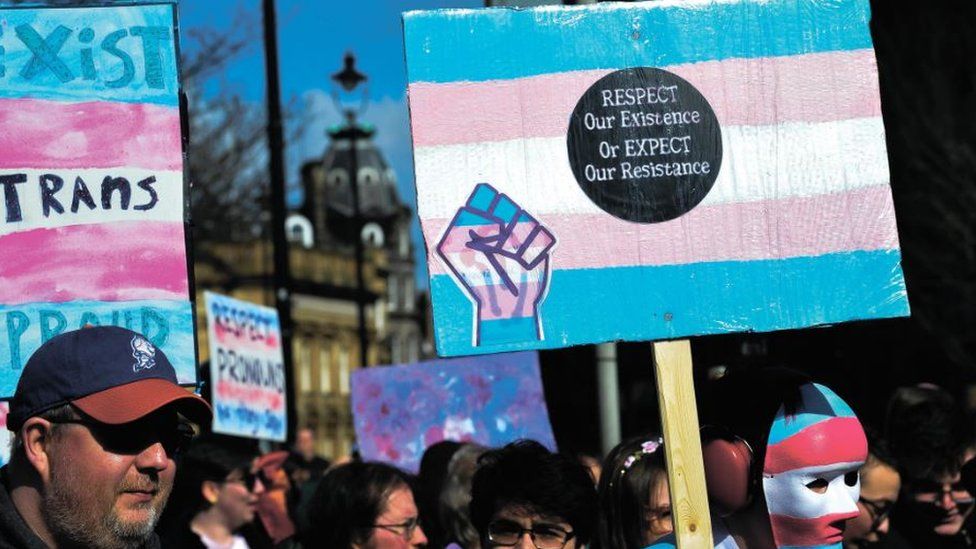While some hot-button issues are topics that have been around for decades or even centuries, there are also a lot of questions plaguing American politics that have only started to be asked in the past few years. One example of this sort of issue would be gender identity. While transgender and nonbinary people have existed for as long as people have, it has taken up until recently for there to be conversations about how to best serve them politically. However, as with any seemingly new idea, there has been a lot of disagreement on how gender identity should be addressed in policy. This is where we once again find the two major political parties resorting to partisan tendencies.

Let’s table the partisan politics for one moment, though, and focus on a much more glaring issue: why is this a political issue? Or, really, why is it being treated like one? This is something that stands out to me when it comes to the conversations being had regarding gender. In fact, according to PBS, at the individual level a majority of both registered Democrats and Republicans oppose aspects of anti-transgender legislation. This agreement between people of both major political parties might seem a little strange, but it really just goes to show that matters involving gender identity should not be decided with legislation based on sweeping generalizations. Gender is a deeply personal thing. It has to do with feeling comfortable with the skin you’re in, and no one can decide what is comfortable for anyone but themselves. This is something that can be understood by people on all areas of the political spectrum, and that’s where this seemingly bipartisan support comes from.

However, the average American might oppose this kind of legislation, but that does not mean that the two major political parties are even remotely in agreement. This is where we return to the previously tabled discussion regarding the effect of partisan politics on gender identity. In particular, according to Pew Research, the partisan gap is most evident when it comes to protecting against discrimination based on gender identity. This comes as a direct result of the individual party platforms on this issue. Democrats have been very vocal about the party’s support for people of all gender identities while Republicans (specifically in the last three or four years) have been vocal in the exact opposite way. The Republican Party has made it very clear that the party itself does not really recognize the validity of being transgender or nonbinary. This contrast is seen in the way that the Democratic Party talks about ensuring equality while the Republican Party talks about the ways that that equality would be harmful. In general, though, all of that talk remains talk and never really amounts to anything more than a reminder of the fact that the two parties don’t agree on anything.

Even though a lot of this partisan mindset is never implemented into policy, it still does a lot of harm. Just the news coverage that these transphobic views receive is enough to be detrimental to the LGBTQ+ community. The partisan aspect of this topic has pushed both sides into extremism, and that extremism is making headlines that in turn add fuel to the fire of transphobia. I believe that an article from The Virginian Pilot described is best by saying that this “causes a level of fear” and “emboldens” the very people who are aiming to discriminate against transgender people. By allowing the space for hate and discrimination, partisan politics has the potential to be doing real harm to people who are already vulnerable members of society.